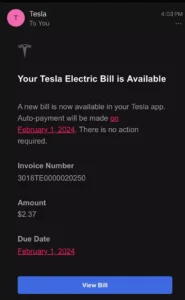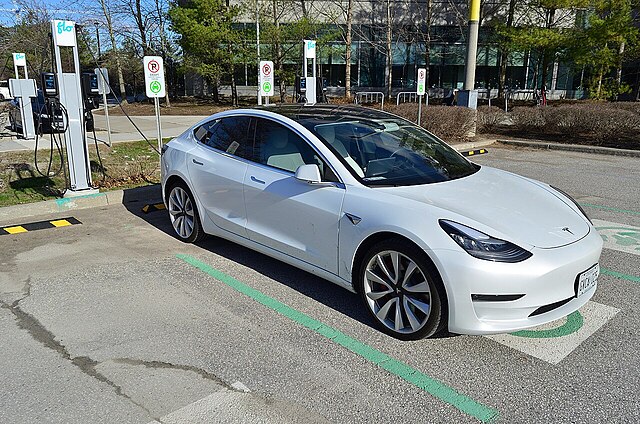Tesla Owner Shares Annual Electric Bill—The Cost Leaves Everyone in Shock
The debate over the affordability of electric vehicles (EVs) often revolves around the long-term costs of running them, especially amid rising electricity prices. However, a recent viral post has left the internet buzzing after a Tesla owner shared his electric bill for an entire year of driving. The figure? A jaw-dropping $2.37.
The post, shared on X (formerly known as Twitter), revealed a sarcastic caption: “First time I have had a bill within the last 12 months. This sucks.” While many assumed the costs of charging a Tesla would run into hundreds or even thousands annually, the reality behind this minuscule bill is as surprising as it is enlightening.
Breaking Down the $2.37 Bill
At first glance, the idea of powering a Tesla for just over two dollars in a year seems almost too good to be true. So, how did this Tesla owner achieve such an astonishingly low cost?
The secret lies not just in Tesla’s efficiency but in the clever use of solar energy and advanced home energy storage systems. In this case, the user has a Tesla Powerwall—a large battery system that integrates with solar panels to store excess solar energy for later use. The system powers the home, and any remaining energy goes into charging the Tesla.
The Role of Tesla Powerwall in Lowering Costs
The Tesla Powerwall is a game-changer for those looking to maximize energy efficiency. By harnessing solar power during the day and storing it for nighttime use, the Powerwall reduces dependency on the grid and, consequently, the associated electricity costs.
However, the system doesn’t come cheap. Powerwalls start at approximately $11,500 (£9,000) and can go up to $15,000 (£11,800), depending on the installation and configuration. This high upfront cost is a significant investment but can pay off over time, especially for Tesla owners who plan to keep their vehicles for years.
Social Media’s Reaction
The viral post sparked a wave of humorous reactions online.
One commenter joked:
“Damn, my dude, post a GoFundMe—the community will rally around you, I’m sure.”
Another chimed in sarcastically:
“That’s horrible. My condolences.”
The post not only highlighted the surprising affordability of operating an EV under the right conditions but also showcased the internet’s penchant for witty commentary.
A Broader Perspective on EV Affordability
While this Tesla owner’s situation is unique due to his solar and Powerwall setup, it raises questions about the true cost-effectiveness of electric vehicles for the average person. Here are some key takeaways:
- Upfront Costs
While Tesla cars and accessories like the Powerwall require a significant initial investment, they can lead to substantial savings in the long term, especially for those committed to renewable energy solutions. - Electricity Costs vs. Fuel Costs
Even without a solar-powered system, charging an EV is typically cheaper than fueling a gas-powered car. According to the U.S. Department of Energy, the cost of charging an EV is often less than half the cost of gasoline for an equivalent distance. - Environmental Benefits
Beyond cost savings, EVs powered by renewable energy significantly reduce carbon emissions, making them a more sustainable choice for the environmentally conscious.
Tesla’s Viral Moments Continue
This isn’t the first time Tesla has captured the internet’s attention. Earlier this year, the company’s latest creation, the Cybertruck, also went viral, sparking debates over its futuristic design and potential impact on the auto industry.
Is It Worth It?
For those considering a Tesla or similar EV, the key question remains: is it worth the investment?
If you’re able to pair your EV with renewable energy solutions like solar panels and energy storage systems, the long-term savings and environmental benefits could outweigh the initial costs. However, for those without access to solar power, the cost dynamics might look very different.
In this Tesla owner’s case, his $2.37 electric bill serves as a shining example of how innovative technology and renewable energy can make EV ownership not only affordable but also a source of inspiration for others.

What do you think? Would you invest in a Tesla Powerwall or similar system to achieve such low running costs? Share this story with friends and family to spark a conversation about the future of energy and transportation!
